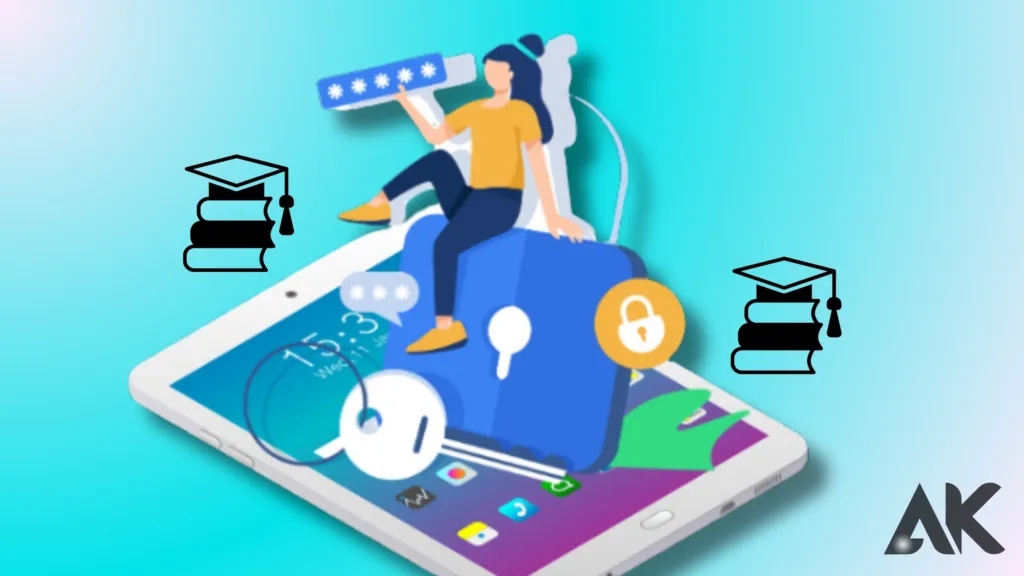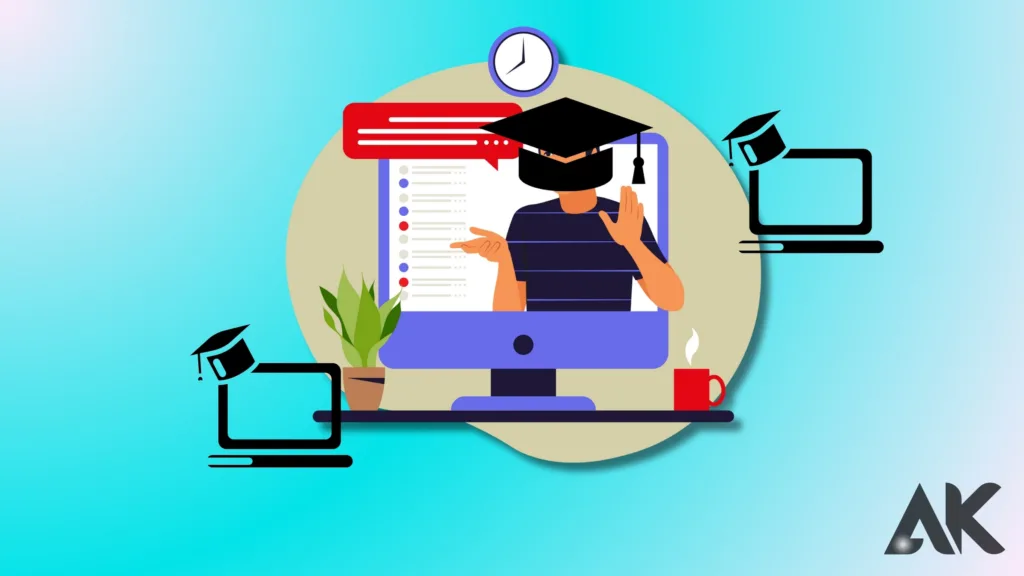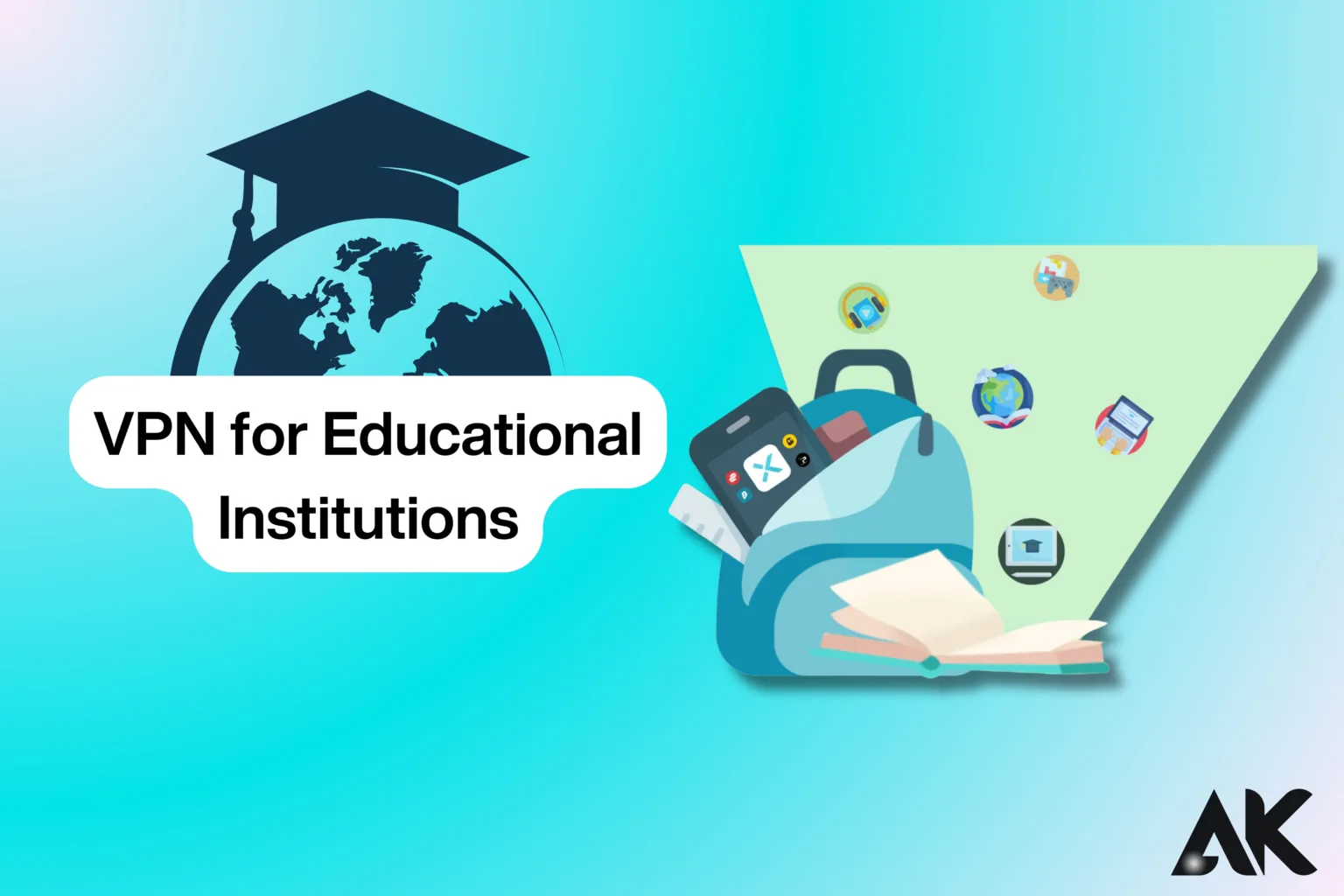Is your school’s online security at risk? The short answer—yes, if you’re not using a VPN for educational institutions. In today’s digital age, schools, colleges, and universities handle vast amounts of sensitive data, from student records to research materials. A VPN (Virtual Private Network) ensures secure and private internet access, protecting both students and faculty from cyber threats.
This blog post will explore why VPN for educational institutions is essential, how it enhances security, and the key benefits it offers. Whether you’re an administrator or an IT professional, understanding the role of a VPN can help safeguard your institution’s digital infrastructure. Let’s dive in!
Why Educational Institutions Need a VPN

The internet is a treasure trove of information, but it also comes with risks. Here’s why using a VPN for educational institutions is essential:
- Privacy: Prevent ISPs or third parties from tracking online activities within the institution’s network.
- Data Protection: Protect sensitive student records, staff data, and institutional information from cyberattacks.
- Access Control: Ensure only authorized users can access the school’s network and resources.
- Bypass Restrictions: Help students access educational content that may be blocked in their region.
What to Look for in a VPN for Educational Institutions

When selecting the best VPN for educational institutions, there are a few key factors to consider. First, strong encryption and security protocols are a must to protect sensitive data like student records, financial information, and staff credentials.
Look for a VPN that offers AES-256 encryption and features like a kill switch to ensure continuous protection. Second, reliable performance is crucial, especially for schools and universities with large networks. A VPN with high-speed servers ensures smooth access to online learning tools, video conferencing, and educational platforms without lag.
Third, scalability and ease of use matter, as the solution should cater to multiple users while being simple to deploy. Finally, consider additional features like multi-device support, budget-friendly pricing, and robust customer support. By focusing on these criteria, schools can ensure they choose the ideal VPN for educational institutions to safeguard their digital infrastructure.
The 7 Best VPNs for Educational Institutions

Let’s dive into the top VPNs that provide secure access for educational institutions.
1.NordVPN – Best Overall VPN for Educational Institutions
- AES-256 encryption
- Double VPN for added security
- 5,500+ servers in 60+ countries
NordVPN is a popular choice for educational institutions, offering unparalleled security and high-speed connections. Its user-friendly interface makes it easy for both students and staff to use. Plus, its threat protection tools shield against phishing and malware.
Why Choose NordVPN?
- Affordable pricing for institutions
- Secure access to global educational content
- 24/7 customer support
2.ExpressVPN – Fastest VPN for Schools and Universities
- Lightning-fast speeds
- Over 3,000 servers worldwide
- TrustedServer technology for enhanced privacy
ExpressVPN is perfect for schools that prioritize speed. Whether you’re streaming educational videos or conducting virtual classes, it ensures zero lag. Additionally, it has an easy-to-use app compatible with various devices.
Why Choose ExpressVPN?
- Optimized for online learning tools
- Secure access even on public Wi-Fi
- Robust data encryption
3.CyberGhost – User-Friendly VPN for Educational Institutions
- 9,000+ servers globally
- Dedicated profiles for streaming and torrenting
- Automatic kill switch
CyberGhost is ideal for institutions new to using VPNs. Its simple setup and tailored server profiles ensure seamless integration into educational environments.
Why Choose CyberGhost?
- Affordable long-term plans
- Block ads and trackers
- Protects against DNS and IP leaks
4.Surfshark – Budget-Friendly VPN for Educational Institutions
- Unlimited simultaneous connections
- MultiHop for extra privacy
- AES-256-GCM encryption
Surfshark is the go-to VPN for institutions on a budget. Despite its affordable pricing, it doesn’t skimp on features. With unlimited connections, all devices within the institution can stay secure.
Why Choose Surfshark?
- Excellent value for money
- Reliable for bypassing content restrictions
- Easy account management for administrators
5.ProtonVPN – Best for Privacy-Focused Institutions
- Secure Core servers for added anonymity
- No-logs policy
- Open-source VPN apps
ProtonVPN prioritizes privacy, making it an excellent choice for educational institutions that handle sensitive data. Its strong focus on transparency ensures a trustworthy service.
Why Choose ProtonVPN?
- Secure and encrypted access to resources
- Free version available for small-scale use
- High-speed servers for smooth online learning
6.IPVanish – Best VPN for Device Management
- Unlimited devices on one account
- 2,200+ servers worldwide
- Advanced data encryption
IPVanish simplifies network management by allowing unlimited device connections. It’s perfect for schools with a diverse range of devices, including desktops, laptops, and mobile phones.
Why Choose IPVanish?
- Seamless setup for institutions
- Comprehensive control for IT administrators
- Secure cloud storage integration
7.Private Internet Access (PIA) – Best Customizable VPN
- 30,000+ servers worldwide
- Open-source apps for transparency
- Advanced settings for tech-savvy users
PIA offers customizable security features, allowing institutions to tailor their VPN setup to meet specific needs. It also supports a wide range of platforms, making it highly versatile.
Why Choose PIA?
- Low-cost subscription plans
- Reliable performance for educational tools
- Regular software updates for enhanced security
How to Set Up a VPN for Educational Institutions
Setting up a VPN doesn’t have to be complicated. Follow these simple steps:
- Choose the Right VPN: Evaluate your institution’s needs and pick a VPN from the list above.
- Subscribe to a Plan: Select a pricing plan that suits your budget and requirements.
- Download and Install the App: Install the VPN app on all devices used in the institution.
- Configure Settings: Enable features like a kill switch and auto-connect for added security.
- Connect to a Server: Choose a server location to unlock global educational content.
- Monitor Usage: Use the VPN dashboard to manage connections and troubleshoot issues.
Benefits of Using a VPN for Educational Institutions
Here are some standout advantages of integrating a VPN into your institution’s network:
- Enhanced Cybersecurity: Keep sensitive data safe from hackers and unauthorized users.
- Improved Online Learning: Provide students with access to global educational resources.
- Cost-Effective Solution: Affordable plans make it accessible for most schools.
- Compliance with Regulations: Meet data privacy laws like GDPR or FERPA.
Conclusion
A VPN for educational institutions is more than just a security tool—it’s a necessity for modern-day learning environments. Whether you’re looking to safeguard sensitive data, unlock global content, or enhance online learning experiences, the 7 VPNs mentioned in this guide provide reliable solutions.
FAQs
1.Why do schools need a VPN?
Schools need a VPN to protect sensitive data, provide secure internet access, and bypass content restrictions for educational resources.
2.Can a VPN improve online learning?
Yes, a VPN ensures uninterrupted access to global learning platforms while safeguarding online activities.
3.Is there a free VPN for educational institutions?
Some VPNs, like ProtonVPN, offer free versions, but they may have limited features compared to paid plans.

